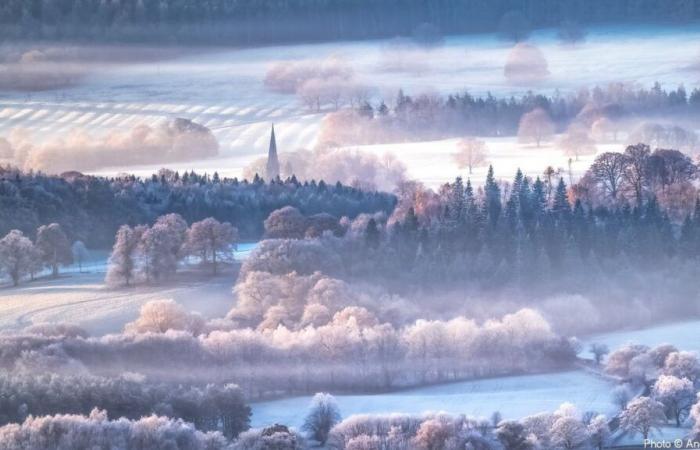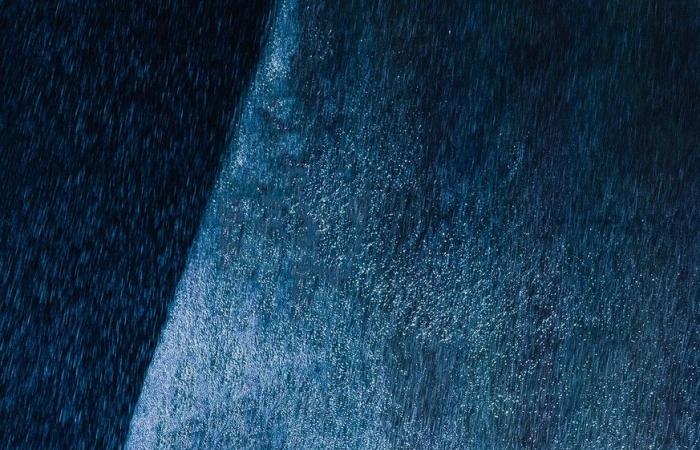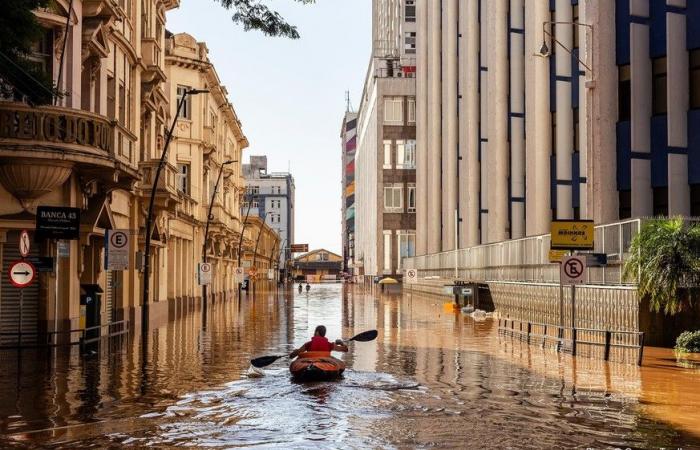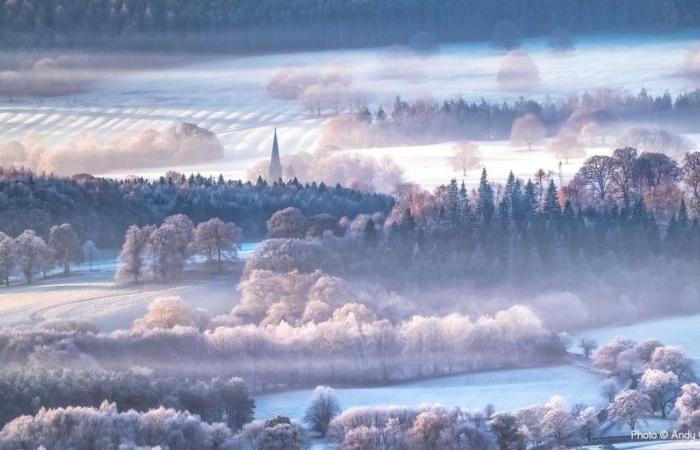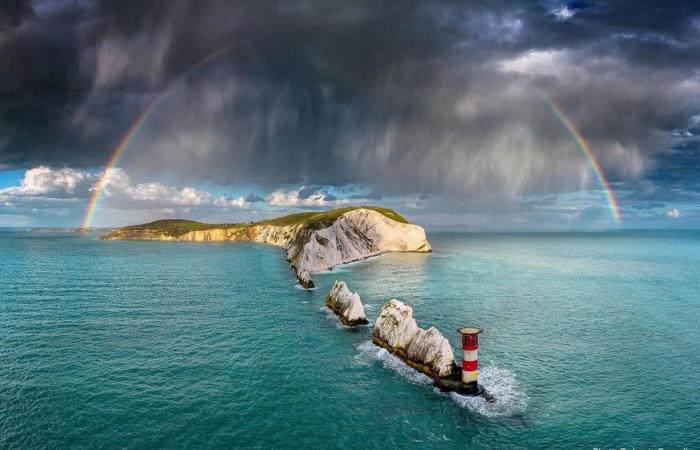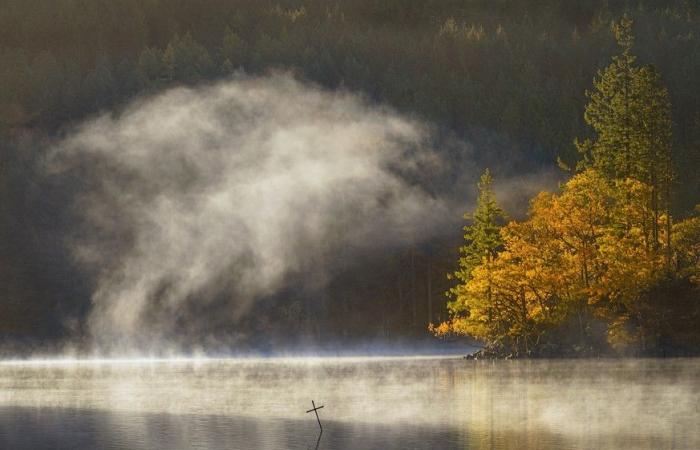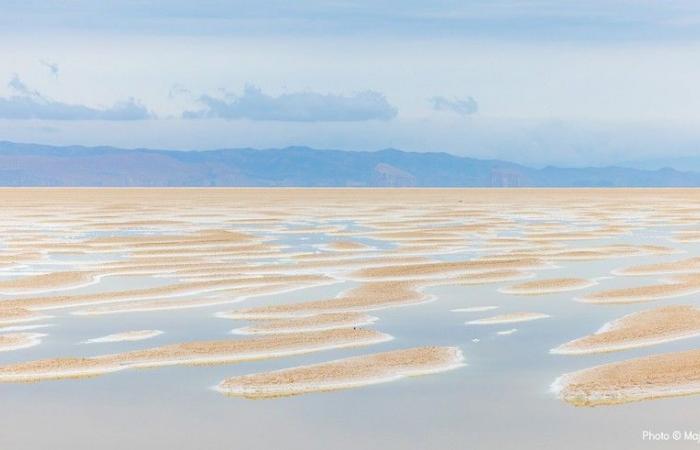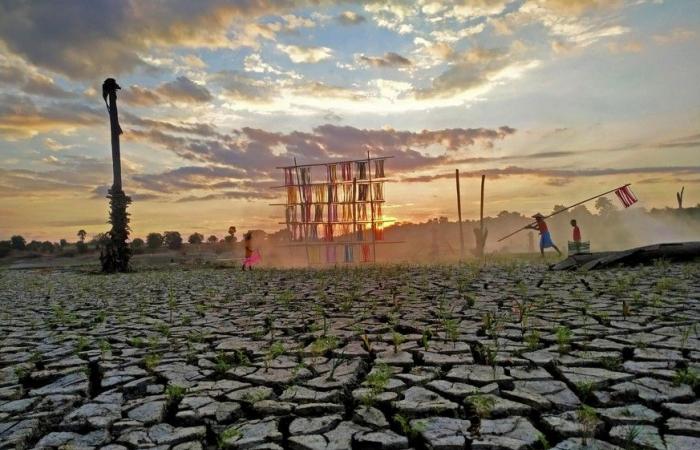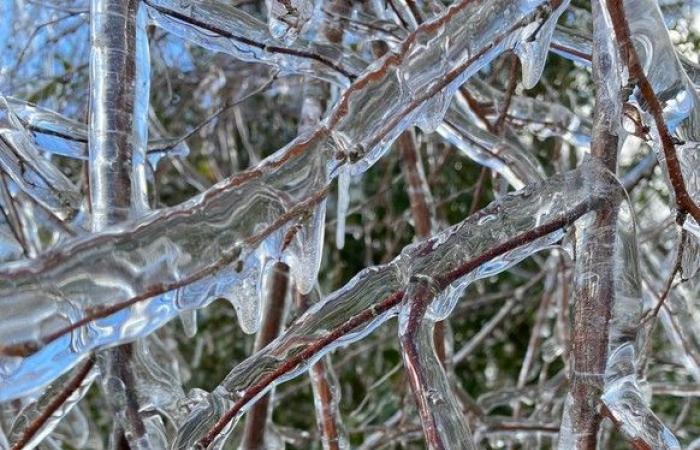The best 2024 weather photos were rewarded in a competition. The photos are breathtaking.
More “Entertainment”
Those who live in the Swiss plains currently see only one rather dull weather phenomenon: fog.
Elsewhere, however, there are beautiful nuances sculpting the skies, sometimes even spectacular. The Royal Meteorological Society has selected the best weather photos in the 2024 Standard Chartered Weather Photographer of the Year competition.
The Winner
Sprites dancing in the dark night de Wang Xin
Winner in the main category.Image: Xin Wang / Royal Meteorological Society
Chinese photographer Wang Xin managed to capture an extremely rare meteorological phenomenon. “Sprites” are lightning bolts that erupt from a cloud up to 100 kilometers high during a thunderstorm. They usually look like flames or mushroom clouds.
Aria Rain by Angelina Widmann
Winner in the “Young” category.Image: Angelina Widmann / The Royal Meteorological Society
The photo shows an opera singer during an open-air performance of Madame Butterfly on the eastern shore of Lake Constance in Bregenz, Austria. Due to its proximity to the mountains, Bregenz is one of the wettest places on Lake Constance, with more than 1,600 millimeters of precipitation per year.
Volcanoes de Nur Syaireen Natasya Binti Azaharin
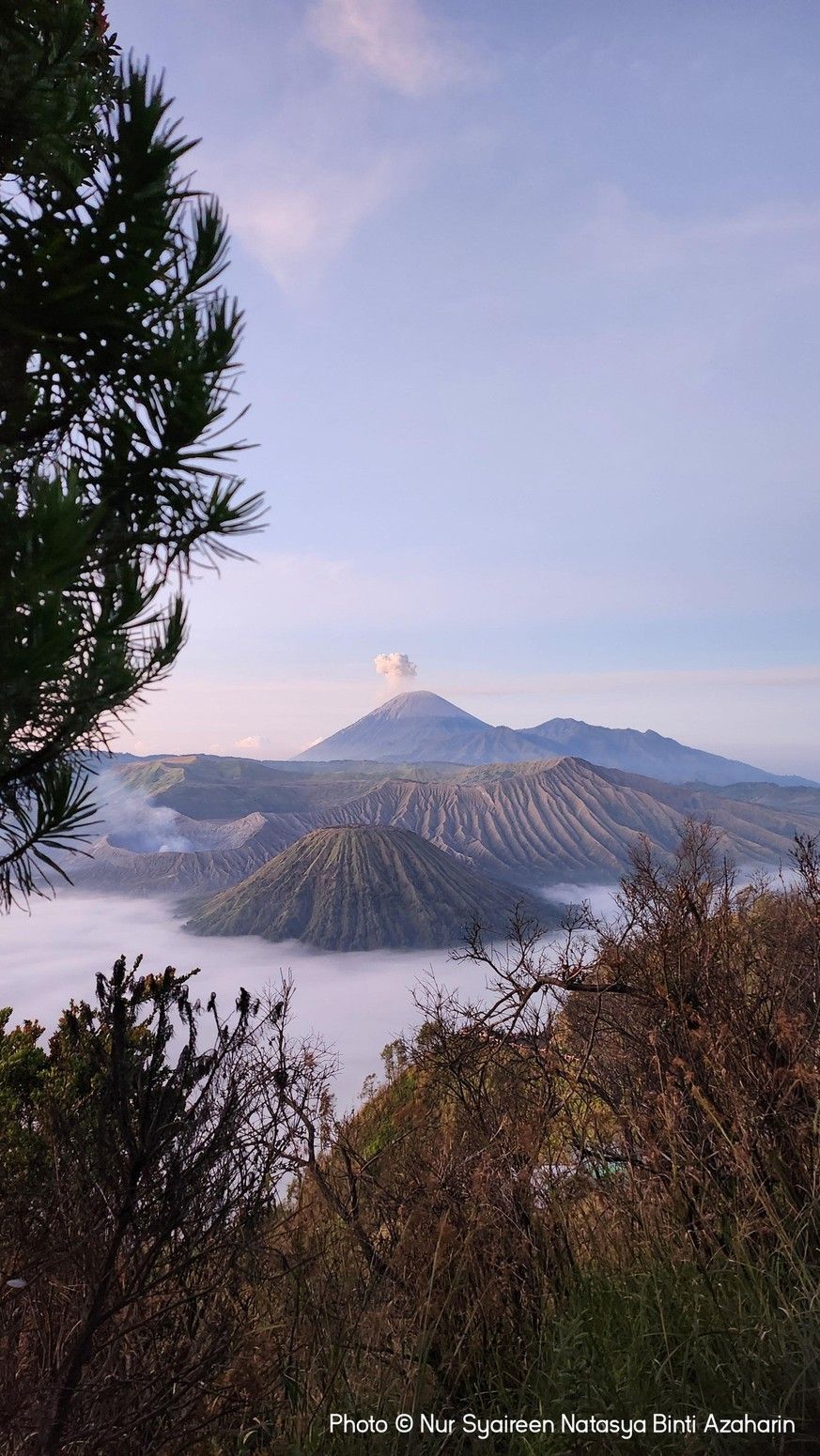
Winner in the “Smartphone” category.Image: Nur Syaireen Natasya Binti Azaharin /The Royal Meteorological Society
In fact, photographer Nur Syaireen Natasya Binti Azaharin wanted to capture the sunrise in East Java, Indonesia. Instead, she encountered smoking volcanoes above low stratus clouds and photographed the scene with her smartphone.
Rowing de Gerson Turelly
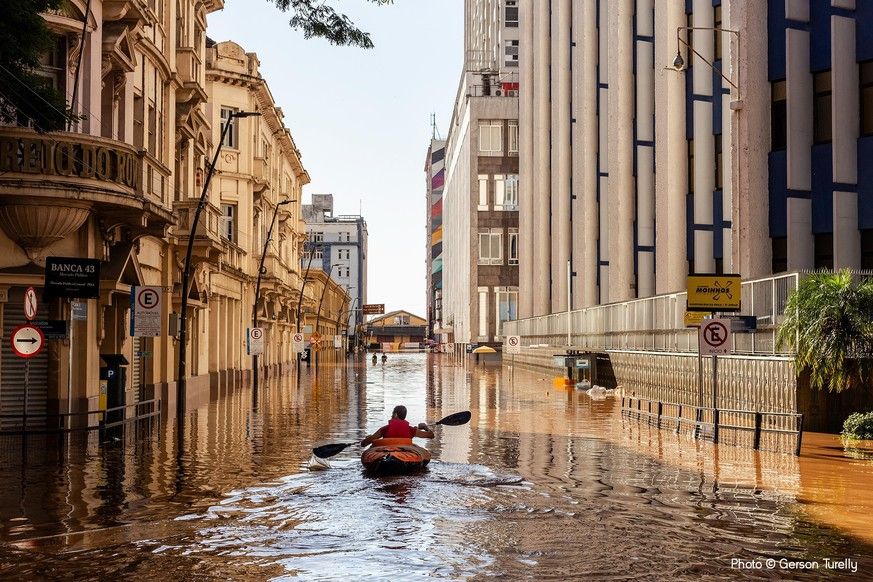
Winner in the “Climate Award” category.Image: Gerson Turelly / The Royal Meteorological Society
The image by local photographer Gerson Turelly shows central Porto Alegre, Brazil, during the devastating floods in Rio Grande do Sul in spring 2024. The street depicted has transformed into a waterway on which a young man paddles his kayak . This is heading towards the most affected areas to rescue stranded people.
2nd place in the main category
Frost paradise par Andy Gray
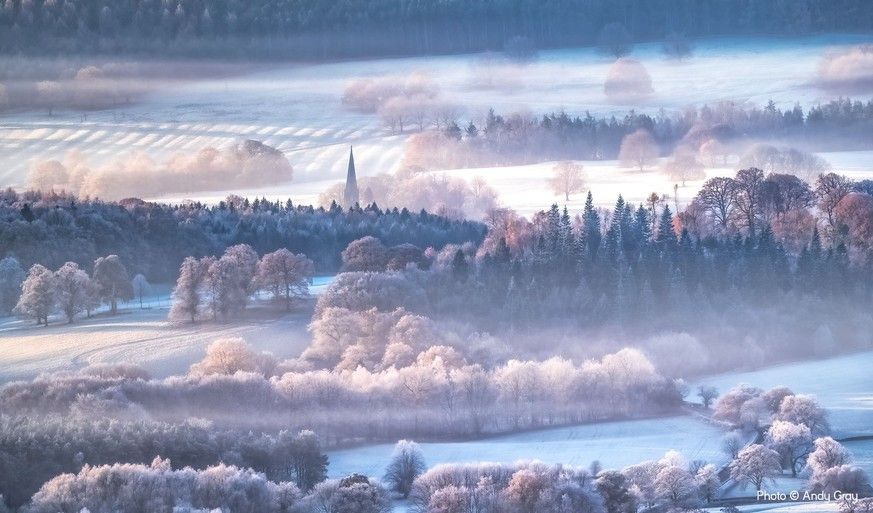
Image: Andy Gray / The Royal Meteorological Society
Second place was won by British photographer Andy Gray, who photographed the morning frost over the Derwent Valley. “The more you stare at it, the more you see,” says a member of the jury.
3rd place in the main category
Evening shower on the needles (Evening Shower Over the Needles) by Jamie Russell
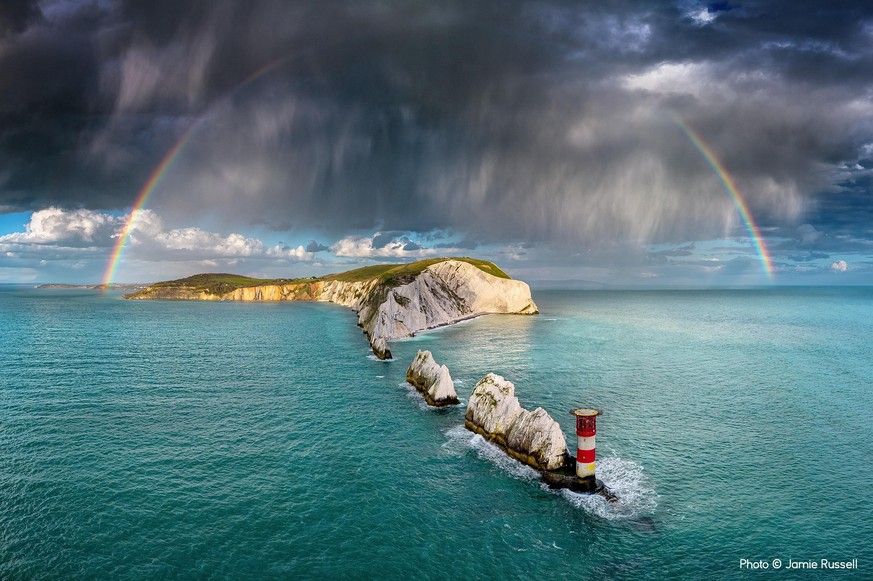
Image: Jamie Russell / The Royal Meteorological Society
Photographer Jamie Russell sensed the rainbow’s potential when a downpour approached the Needles, a group of rocky islets off the Isle of Wight, off the south coast of England. His instinct paid off: he sent his drone into the air and captured this spectacular weather combination.
Finalists in all categories
Morning fog by David Hendry
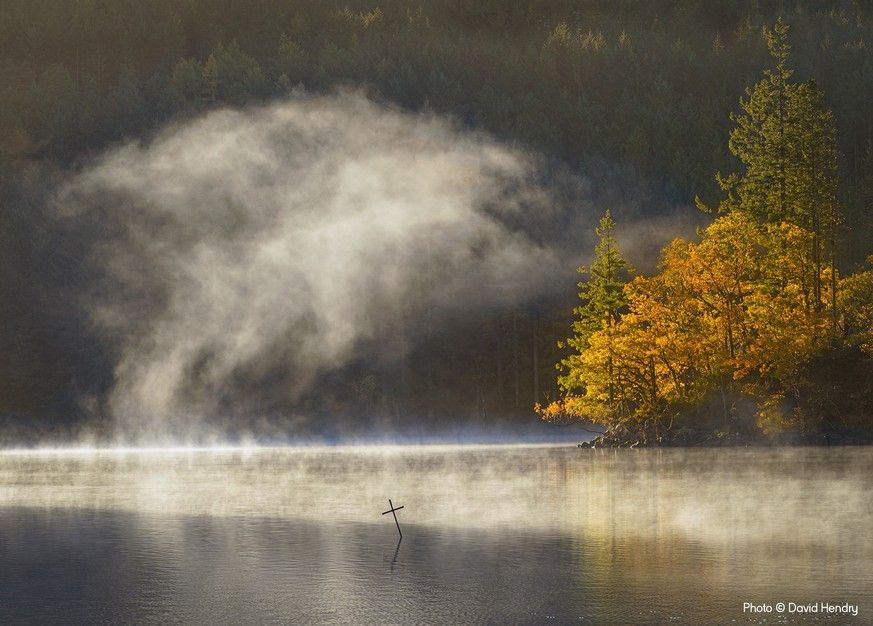
Image: David Hendry / The Royal Meteorological Society
This photo by David Hendry shows Loch Ard in Scotland’s Trossachs National Park in the early hours of October. In autumn, large bodies of water often remain warmer than the surrounding land, causing water to evaporate on the surface.
Lac Half-Life by Majid Hojati
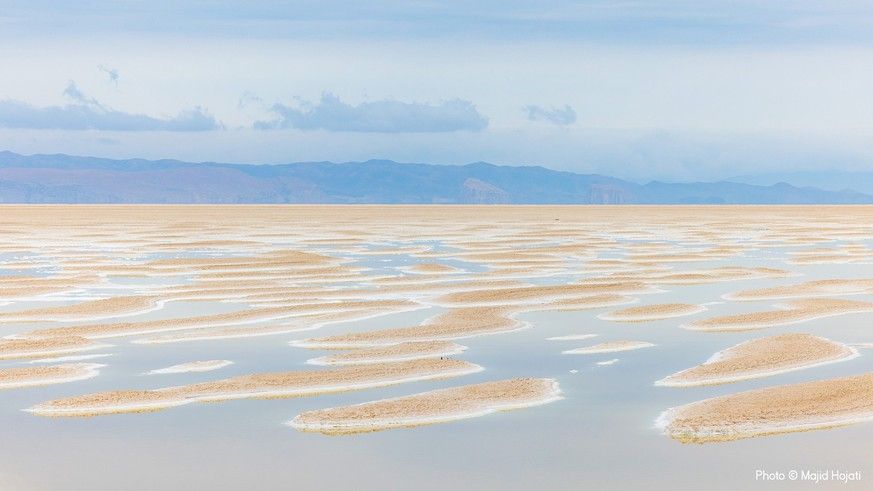
Image: Majid Hojati / The Royal Meteorological Society
Iranian photographer Majid Hojati shows the drying up Lake Urmia, which was once the world’s second largest saltwater lake and Iran’s largest wetland. Severe periods of drought and the withdrawal of water for human consumption have led to a drastic drop in water levels. Since the turn of the century, the lake’s water volume has decreased by 95 percent.
Morning Life from Zaw Zaw Water
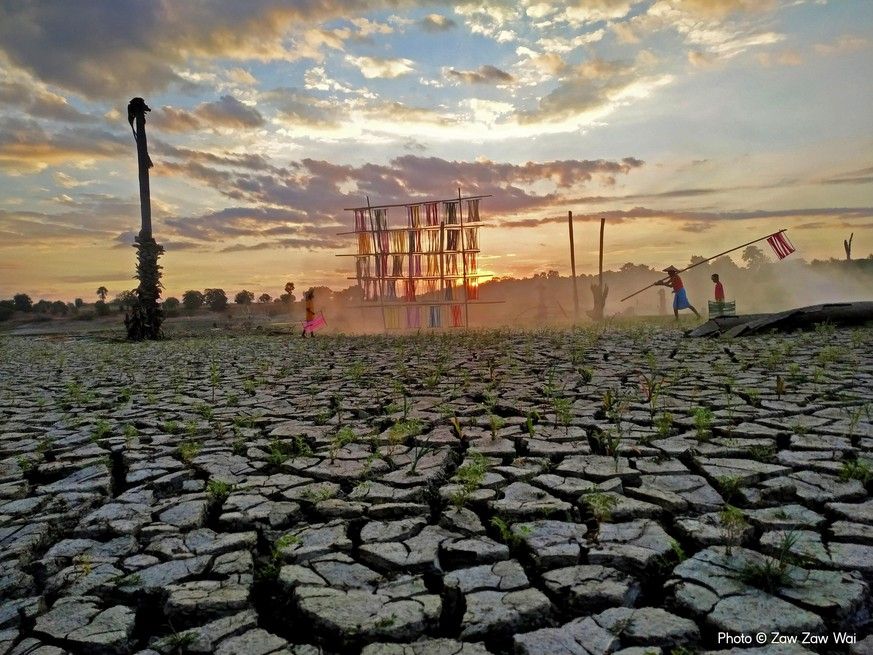
Image: Zaw Zaw Wai / The Royal Meteorological Society
A family hangs up dyed cotton canvases at dawn to dry. A peaceful scene, but the cracked earth in Zaw Zaw Wai’s smartphone image recalls the enormous quantities of water swallowed up by cotton cultivation. Nearly 2,700 liters of water are needed to produce a single cotton T-shirt. Much cotton is grown in Myanmar’s ‘Dry Zone’ – droughts are common.
The ice storm d’Andrea Kleene
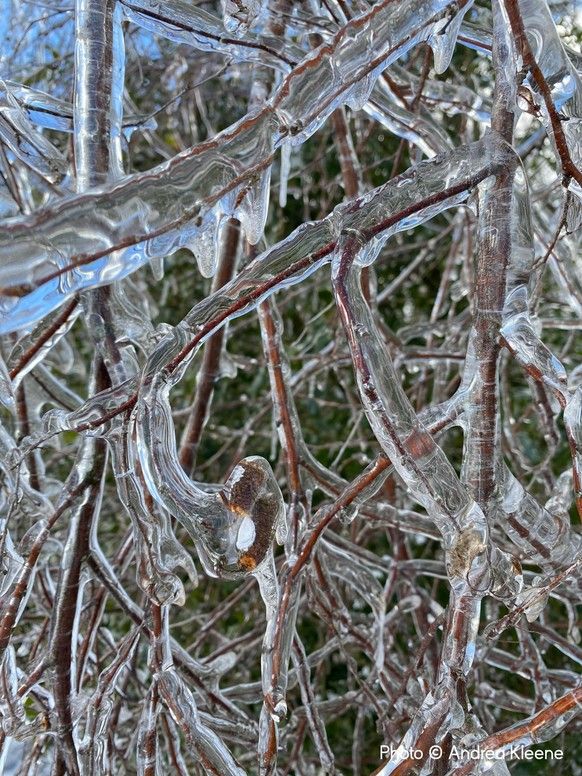
Image: Andrea Kleene / The Royal Meteorological Society
In February 2021, Andrea Kleene captured these ice-covered branches after a particularly intense freezing rain. This phenomenon occurs when supercooled rain meets a cold surface. The droplets spread out and freeze relatively slowly, creating a transparent, dense layer of ice.
This certainly gives rise to beautiful scenes like this, but also involves dangers: For example when the layer of ice on the power lines becomes too heavy and collapses. Or if it settles on the ground invisibly and causes people to fall.

